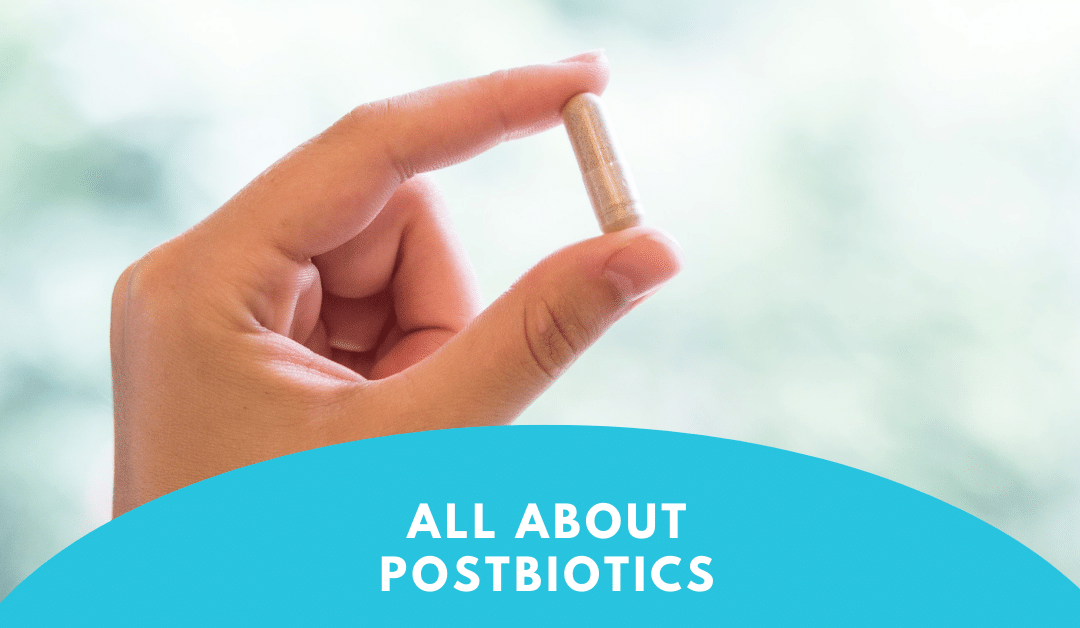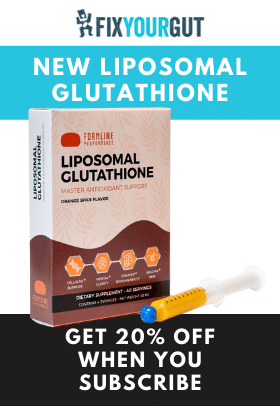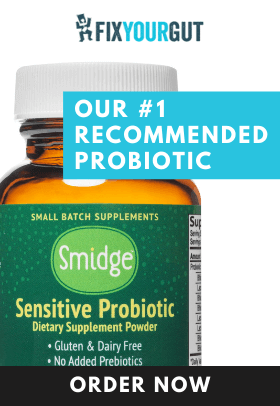Postbiotics is a recent buzzword being talked about in the news. Many people know about probiotics, fewer know about prebiotics, and almost no one has heard of postbiotics. Probiotics are supplements that contain hopefully beneficial microorganisms that colonize your digestive tract and/or trigger hopefully positive immune reactions within your digestive system. Prebiotics are fermentable compounds that feed microorganisms in your digestive system. Prebiotics can also be taken in supplemental form. Prebiotics is what you prebiotics consume to form/grow colonies and remain healthy(Smidge is our #1 recommended Probiotic). What are postbiotics?1 2 3
What are Postbiotics?
Postbiotics are microbial fermentation byproducts. Microorganisms, including bacteria and yeast, ferment organic substrates to produce adenosine triphosphate for energy transfer. “Postbiotics can include many different constituents, including metabolites, short-chain fatty acids (SCFAs), microbial cell fractions, functional proteins, extracellular polysaccharides (EPS), cell lysates, teichoic acid, peptidoglycan-derived muropeptides, and pili-type structures.” Probiotic microorganisms that produce helpful postbiotics, including SCFAs, have a symbiotic relationship in the digestive system of their human host. We feed them carbohydrates to ferment for energy, and they produce SCFAs within our digestive tract to improve our health. Finally, another example of helpful postbiotics are nutrients our microbiome produces for us, including many B vitamins and vitamin K2.4
For example, one of the essential symbiotic-produced SCFAs is butyrate. Butyrate fuels colonocytes, enterocytes found in our colon. Butyrate is β-oxidized into Acetyl-CoA and constitutes the primary energy source for our colonocytes. Acetyl-CoA combines with oxaloacetate to produce citric acid within our cell’s mitochondria, which starts the Krebs Cycle to produce adenosine triphosphate for energy transfer to our cells.
Butyrate stimulates MUC2 mucin production by human colonocytes, which is crucial for intestinal mucosal barrier health (relieves increased colonic permeability). Butyrate suppresses intestinal inflammation by inhibiting immune cells from releasing pro-inflammatory signaling molecules, including interleukin-1, interleukin-12, tumor necrosis factor-alpha, and interferon-gamma.
If your intestines are heavily inflamed (like during an ulcerative colitis flare), anecdotal reports within various health groups have shown that butyrate supplementation might increase inflammation, so supplement with caution. Proper butyrate production within the gut or supplementation might also relieve constipation. Butyrate might enhance serotonin release within the intestinal tract, a muscle contractor that may strengthen the migrating motor complex and improve sluggish motility.
Finally, butyrate seems to have antimicrobial properties against numerous Gram-negative bacteria, and its supplementation might help anyone suffering from Gram-negative bacterial upper gut dysbiosis, like H. pylori (might trigger severe die-off [herxheimer reaction] and trigger inflammation and pain).5 6 7 8 9 10
“The main butyrate producing-bacteria in the human gut belong to the phylum Firmicutes, in particular, Faecalibacterium prausnitzii and Clostridium leptum of the family Ruminococcaceae, and Eubacterium rectale and Roseburia spp. of the family Lachnospiraceae.” I recommend a healthy, well-rounded diet like the Perfect Health Diet to help grow and sustain butyrate-producing Firmicute colonies within our digestive system for proper health! Frequently consuming healthy, organically certified fiber-containing foods, including, for example, cruciferous vegetables, oats, reheated leftover rice, spicy peppers, and black beans in moderation, can help to grow or sustain butyrate-producing Firmicute colonies within the human body. In addition, taking fiber-based supplements daily, including arabinogalactans, acacia fiber, and inulin, can also grow and sustain butyrate-producing Firmicute colonies.11 12
Some people might have to supplement with butyrate to help improve the health of their digestive system, relieve leaky gut, reduce upper gut dysbiosis, or enhance motility. Here at Fix Your Gut the butyrate supplement we recommend is:
Pure Encapsulations – SunButyrate
Are you suffering from digestive issues or any other health problems?
I’ve helped tens of thousands of readers achieve their health goals through my coaching calls. One session can save you thousands of hours of research. Click here to book your first session.
- https://www.ncbi.nlm.nih.gov/pmc/articles/PMC6801921/ ↩
- https://my.clevelandclinic.org/health/articles/14598-probiotics ↩
- https://www.mayoclinic.org/prebiotics-probiotics-and-your-health/art-20390058#:~:text=Prebiotics%20are%20specialized%20plant%20fibers,as%20fiber%20and%20resistant%20starch ↩
- https://www.ncbi.nlm.nih.gov/pmc/articles/PMC6801921/ ↩
- https://www.frontiersin.org/articles/10.3389/fimmu.2019.00277/full#:~:text=Butyrate%20is%20the%20main%20energy,to%20butyrate%20oxidation%20(89) ↩
- https://www.ncbi.nlm.nih.gov/pmc/articles/PMC3070119/ ↩
- https://www.sciencedirect.com/topics/engineering/krebs-cycle#:~:text=The%20Krebs%20cycle%20involves%20a,Figure%208.25 ↩
- https://pubmed.ncbi.nlm.nih.gov/11024006/ ↩
- https://www.ncbi.nlm.nih.gov/pmc/articles/PMC4816278/ ↩
- https://academic.oup.com/ecco-jcc/article/13/10/1351/5421326 ↩
- https://www.frontiersin.org/articles/10.3389/fimmu.2019.00277/full#:~:text=Butyrate%20is%20the%20main%20energy,to%20butyrate%20oxidation%20(89). ↩
- https://cfsremission.com/2017/04/29/increasing-faecalibacterium/ ↩







yes, butyrates are important for healthy microbiome.
John, I had a consult with you and you invited me back to try again for free. Clostridium difficile you helped me with.